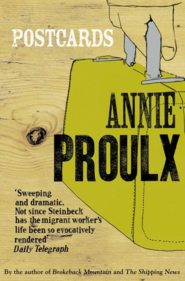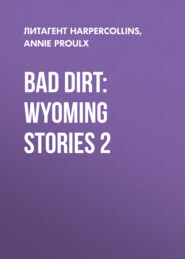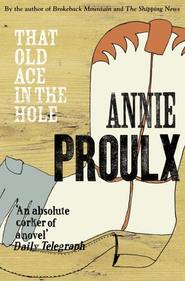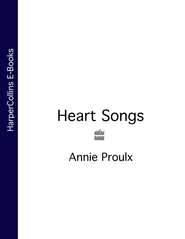По всем вопросам обращайтесь на: info@litportal.ru
(©) 2003-2024.
✖
Настройки чтения
Размер шрифта
Высота строк
Поля
“We ought to be grateful for the rain in this drought. Know what Bench says?” Bench was the UPS driver, the source of Cook’s information on everything from road conditions to family squabbles.
“No.”
“Says we are in the beginning of turning into a desert. It’s all going to blow away,” she said.
When Berenice went to announce dinner—turkey patties, French fries (Mr. Mellowhorn still called them “freedom fries”) with turkey patty gravy, cranberry relish, creamed corn and homemade rolls—she saw that Deb had worked Mr. Forkenbrock into the corner of the settee, and Powder Face was in the chair with the bad leg watching cops squash the faces of black men onto sidewalks. Mr. Forkenbrock was staring at the dark window, the coursing raindrops catching the blue television flicker. He gave off an aura of separateness. Deb and Powder Face might have been two more of Mellowhorn’s stuffed dogs.
After dinner, on her way back to the kitchen to help the cook clean up, Berenice opened the door for a breath of fresh air. The eastern half of the sky was starry, the west a slab of basalt.
In the early morning darkness the rain began again. He did not know but would have understood the poet’s line “I wake and feel the fell of dark, not day.” Nothing in nature seemed more malign to Ray Forkenbrock than this invisible crawl of weather, the blunt-nosed cloud advancing under the lid of darkness. As the dim morning emerged, like a photograph in developing solution, the sound of the rain sharpened. That’s sleet, he thought, remembering a long October ride in such weather when he was young, his denim jacket soaked through and sparkling with ice, remembered meeting up with that old horse catcher who lived out in the desert, must have been in his eighties, out there in the rattling precip limping along, heading for the nearest ranch bunkhouse, he said, to get out of the weather.
“That’d be Flying A,” said Ray, squinting against the slanting ice.
“Ain’t that Hawkins’s place?”
“Naw. Hawkins sold out couple years ago. A fella named Fox owns it now,” he said.
“Hell, I lose touch out here. Had a pretty good shack up until day before yesterday,” the horse catcher said between clicking teeth and went on to tell that his place had burned down and he’d slept out in the sage for two nights but now his bedroll was soaked and he was out of food. Ray felt bad for him and at the same time wanted to get away. It seemed awkward to be mounted while the man was afoot, but then he always had that same uncomfortable, guilty itch when he rode past a pedestrian. Was it his fault the old man didn’t have a horse? If he was any good at horse catching he should have had a hundred of them. He foraged through his pockets and found three or four stale peanuts mixed with lint.
“It ain’t much but it’s all I got,” he said, holding them out.
The old boy had never made it to the Flying A. He was discovered days later sitting with his back against a rock. Roy remembered the uncomfortable feeling he’d had exchanging a few words with him, thinking how old he was. Now he was the same age, and he had reached the Flying A—the warmth and dry shelter of the Mellowhorn Home. But the old horse catcher’s death, braced against a rock, seemed more honorable.
It was six-thirty and there was nothing to get up for, but he put on his jeans and shirt, added an old man’s sweater as the dining room could be chilly in the morning before the heat got going, left his boots in the closet and shuffled down the hall in red felt slippers, too soft to deliver a kick to stuffed Bugs with the googly eyes at the foot of the stairs. The slippers were a gift from his only granddaughter, Beth, married to Kevin Bead. Beth was important to him. He had made up his mind to tell her the ugly family secret. He would not leave his descendants to grapple with shameful uncertainties. He was going to clear the air. Beth was coming on Saturday afternoon with her tape recorder to help him get it said. During the week she would type it into her computer and bring him the crisp printed pages. He might have been nothing more than a ranch hand in his life, but he knew a few things.
Beth was dark-haired with very red cheeks that looked freshly slapped. It was the Irish in her he supposed. She bit her fingernails, an unsightly habit in a grown woman. Her husband, Kevin, worked in the loan department of the High Plains Bank. He complained that his job was stupid, tossing money and credit cards to people who could never pay up.
“Used to be to get a card you had to work hard and have good credit. Now the worse your credit the easier it is to get a dozen of them,” he said to his wife’s grandfather. Ray, who had never had a credit card, couldn’t follow the barrage of expository information that followed about changing bank rules, debt. These information sessions always ended with Kevin sighing and saying in a dark tone that the day was coming.
Ray Forkenbrock guessed Beth would use the computer at the real estate office where she worked to transcribe his words.
“Oh no, Grandpa, we’ve got a computer and printer at home. Rosalyn wouldn’t like for me to do it in the office,” she said. Rosalyn was her boss, a woman Ray had never seen but felt he knew well because Beth talked often about her. She was very, very fat and had financial trouble. Scam artists several times stole her identity. Every few months she spent hours filling out fraud affidavits. And, said Beth, she wore XXXL blue jeans and a belt with a silver buckle as big as a pie tin that she had won at a bingo game.
Ray snorted. “A buckle used to mean something,” he said. “A rodeo buckle, best part of the prize. The money was nothing in them days,” he said. “We didn’t care about the money. We cared about the buckle,” he said, “and now fat gals win them at bingo games?” He twisted his head around and looked at the closet door. Beth knew he must have a belt with a rodeo buckle in there.
“Do you watch the National Finals on television?” she said. “Or the bull-riding championship?”
“Hell, no,” he said. “The old hens here wouldn’t put up with it. They got that teevee lined out from dawn to midnight—crime, that reality shit, fashion and python shows, dog and cat programs. Watch rodeo? Not a chance,” he said.
He glared at the empty hall beyond the open door. “You wouldn’t never guess the most of them lived on ranches all their life,” he added sourly.
Beth spoke to Mr. Mellowhorn and said she thought her grandfather could at least watch the National Finals or the PBR rodeos considering what they were paying for his keep. Mr. Mellowhorn agreed.
“But I like to keep out of residents’ television choices, you know, democracy rules at the Mellowhorn Home, and if your grandfather wants to watch rodeo all he has to do is persuade a majority of the inhabitants to sign a petition and—”
“Do you have any objection if my husband and I get him a television set for his room?”
“Well, no, of course not, but I should just mention that the less fortunate residents might see him as privileged, even a little high-hat if he holes up in his room and watches rodeo instead of joining the community choice—”
“Fine,” said Beth, cutting past the social tyranny of the Mellowhorn Home. “That’s what we’ll do, then. Get him a snooty, high-hat television. Family counts with me and Kevin,” she said. “I don’t suppose you have a satellite hookup, do you?” she asked.
“Well, no. We’ve discussed it, but—maybe next year—”
She brought Ray a small television set with a DVD player and three or four discs of recent years’ rodeo events. That got him going.
“Christ, I remember when the finals was in Oklahoma City, not goddamn Las Vegas,” he said. “Of course bull riding has pushed out all the other events now, good-bye saddle bronc and bareback. I was there when Freckles Brown rode Tornado in 1962,” he said. “Forty-six year old, and the ones they got now bull riding are children! Make a million dollars. It’s all show business now,” he said. “The old boys was a rough crew. Heavy drinkers, most of them. You want to know what pain is, try bull riding with a bad hangover.”
“So I guess you did a lot of rodeo riding when you were young?”
“No, not a lot, but enough to get broke up some. And earned a buckle,” he said. “You heal fast when you’re young, but the broke places sort of come back to life when you are old. I busted my left leg in three places. Hurts now when it rains,” he said.
“How come you cowboyed for a living, Grandpa Ray? Your daddy wasn’t a rancher or a cowboy, was he?” She turned the volume knob down. The riders came out of a chute, again and again, monotonously, all apparently wearing the same dirty hat.
“Hell no, he wasn’t. He was a coal miner. Rove Forkenbrock,” he said. “My mother’s name was Alice Grand Forkenbrock. Dad worked in the Union Pacific coal mines. Something happened to him and he quit. Moved into running errands for different outfits, Texaco, California Petroleum, big outfits.
“Anyway, don’t exactly know what the old man did. Drove a dusty old Model T. He’d get fired and then he had to scratch around for another job. Even though he drank—that’s what got him fired usually—he always seemed to get another job pretty quick.” He swallowed a little whiskey.
“Anymore I wouldn’t go near the mines. I liked horses almost as much as I liked arithmetic, liked the cow business, so after I graduated eighth grade and Dad said better forget high school, things were tough and I had to find work,” he said. “At the time I didn’t mind. What my dad said I generally didn’t fuss over. I respected him. I respected and honored my father. I believed him to be a good and fair man.” He thought, unaccountably, of weeds.
“I tried for a job and got took on at Bledsoe’s Double B,” he said. “The bunkhouse life. The Bledsoes more or less raised me to voting age. At that point I sure didn’t want nothing to do with my family,” he said and fell into an old man’s reverie. Weeds, weeds and wildness.
Beth was quiet for a few minutes, then chatted about her boys. Syl had acted the part of an eagle in a school play and what a job, making the costume! Just before she left she said offhandedly, “You know, I want my boys to know about their great-granddad. What do you think if I bring my recorder and get it on tape and then type it up? It would be like a book of your life—something for the future generations of the family to read and know about.”
He laughed in derision.
“Some of it ain’t so nice to know. Every family got its dirty laundry and we got ours.” But after a week of thinking about it, of wondering why he’d kept it bottled up for so long, he told Beth to bring on her machine.
They sat in his little room with the door closed.
“‘Antisocial,’ they’ll say. Everybody else sits with the door open hollering at each other’s folks as if they was all related somehow. A regional family, they call it here. I like my privacy.”
She put a glass of whiskey, another of water and the tape recorder, smaller than a pack of cigarettes, on the table near his elbow and said, “It’s on, Grandpa. Tell me how it was growing up in the old days. Just talk any time you are ready.”
He cleared his throat and began slowly, watching the spiky volume meter jump. “I’m eighty-four years old and most of them involved in the early days has gone on before, so it don’t make much difference what I tell.” He took a nervous swallow of the whiskey and nodded.
“I was fourteen year old in nineteen and thirty-three and there wasn’t a nickel in the world.” The silence of that time before traffic and leaf blowers and the boisterous shouting of television was embedded in his character, and he spoke little, finding it hard to drag out the story. The noiselessness of his youth except for the natural sound of wind, hoofbeats, the snap of the old house logs splitting in winter cold, wild herons crying their way downriver was forever lost. How silent men and women had been in those times, trusting to observational powers. There had been days when a few little mustache clouds moved, and he could imagine them making no more sound than dragging a feather across a wire. The wind got them and the sky was alone.
“When I was a kid we lived hard, let me tell you. Coalie Town, about eight miles from Superior. It’s all gone now,” he said. “Three-room shack, no insulation, kids always sick. My baby sister Goldie died of meningitis in that shack,” he said.
Now he was warming up to his sorry tale. “No water. A truck used to come every week and fill up a couple barrels we had. Mama paid a quarter a barrel. No indoor plumbing. People make jokes about it now but it was miserable to go out there to that outhouse on a bitter morning with the wind screaming up the hole. Christ,” he said. He was silent for so long Beth backed up the tape and pressed the pause button on the recorder. He lit a cigarette, sighed, abruptly started talking again. Beth lost a sentence or two before she got the recorder restarted.
“People thought they was doing all right if they was alive. You can learn to eat dust instead of bread, my mother said many a time. She had a lot a old sayings. Is that thing on?” he said.
“Yes, Grandpa,” she said. “It is on. Just talk.”
“Bacon,” he said. “She’d say if bacon curls in the pan the hog was butchered wrong side of the moon. We didn’t see bacon very often and it could of done corkscrews in the pan, would have been okay with us long as we could eat it,” he said.
“There was a whole bunch a shacks out there near the mines. They called it Coalie Town. Lot of foreigners.











